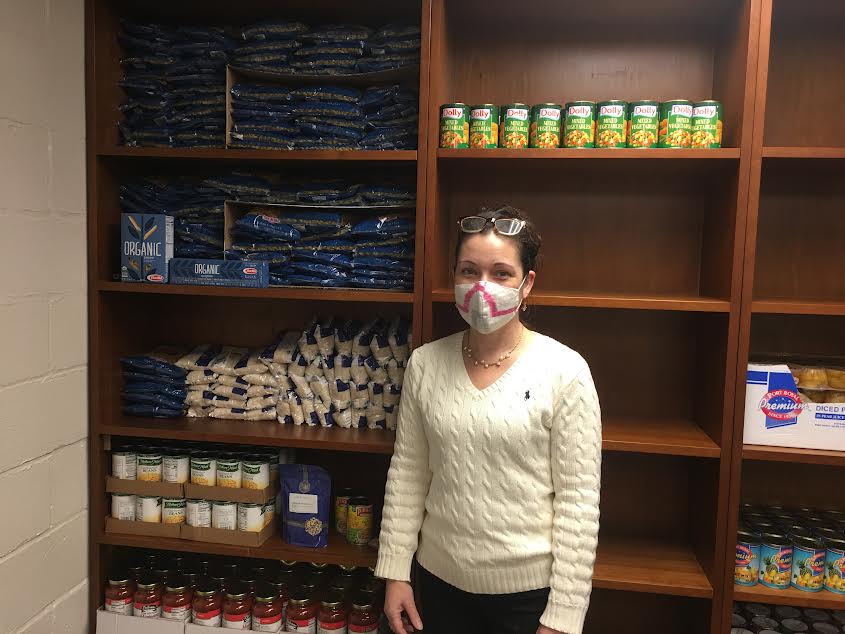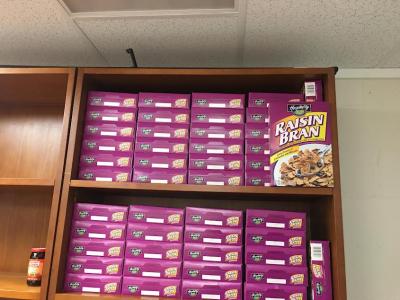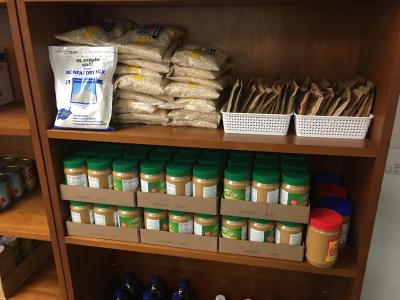Food pantry opens in Marion to address unrecognized need
Marion may be perceived as a financially comfortable community, but poverty is no stranger to some residents, said Karen Gregory, director of the Marion Council on Aging.
Six percent of the overall population falls under the federal poverty guidelines, according to April 2019 figures from the Institute for Community Health. Seven percent of seniors also fit in this category, Gregory said.
“We have people who are barely making ends meet, and sometimes it’s a struggle,’’ Gregory said. “There is a need there.’’
A food pantry has opened at the Benjamin D. Cushing Community Center, 465 Mill St.
This will be the only food pantry in Marion, Gregory said.
The pantry is open three days a week: Tuesdays, 4-6 p.m.; and Thursdays and Saturdays, 10 a.m. to noon.
Having Saturday hours will help people who might work during the week still be able to access the pantry, she said.
The pantry, which is stocked in partnership with the YMCA and the Greater Boston Food Bank, features a range of food, including baby food, cereals, crackers, jelly, peanut butter and granola bars, among other items. Non-food items include paper goods and feminine hygiene products.
Items are placed on shelves in a separate room at the center. “We want them to come in here and shop just like they would in the local store,’’ she said.
Gregory was prompted to open the pantry in part after seeing how many seniors responded to food distribution during the pandemic.
Although she directs seniors in need to a variety of state and federal programs, she believes people like the concept of providing help in their own community.
People appreciate knowing Marion residents are receiving help at a Marion location, she said. “There’s something about taking care of your own,’’ she said.
Visitors to the food pantry will be asked their name, address and number of people in their household for record-keeping purposes, she said. No questions will be asked about income.
“We want to give them that dignity,’’ she said.
She asks that visits be limited to once a week. If more help is needed, she will alert people in need to other resources.
Services are available, she said, but not everyone uses them, she said.
More than 800 people in Marion qualify for MassHealth, an insurance program for low-income residents, and 362 participate in the SNAP, or food stamp program, which provides food assistance to those in need.
The difference between these two numbers, which she called the “SNAP gap,’’ concerns her, since in most cases people on MassHealth qualify for some food assistance, she said.
This might reflect people’s unawareness of the food assistance or their reluctance to apply, possibly out of what they may perceive as a stigma attached to needing help.
The problem “isn’t going to be solved overnight,’’ especially in light of rising food prices, she said.
One thing does help, she said: The generosity of fellow Marion residents.
Donations of food or money may be made by visiting the center during business hours.
Those gifts add up, Gregory said.
“We have some very generous people in Marion who want to take care of their community,’’ she said. “They’ve really stepped up.’’














